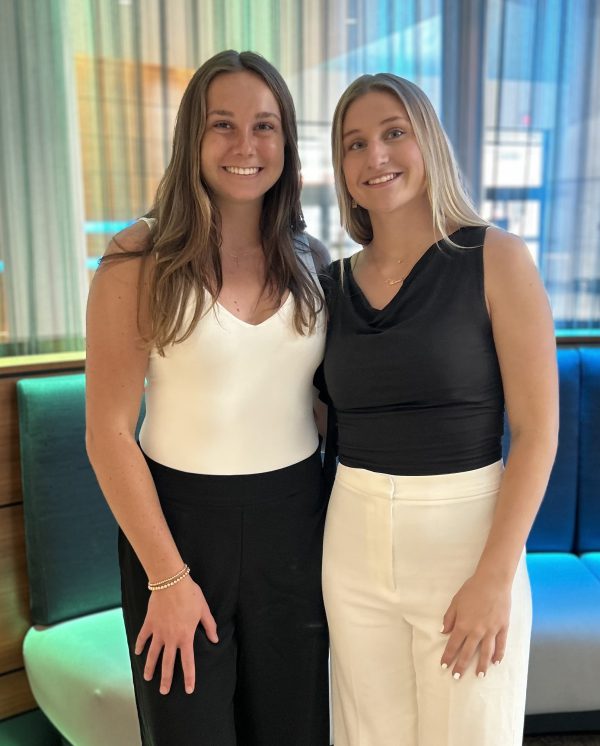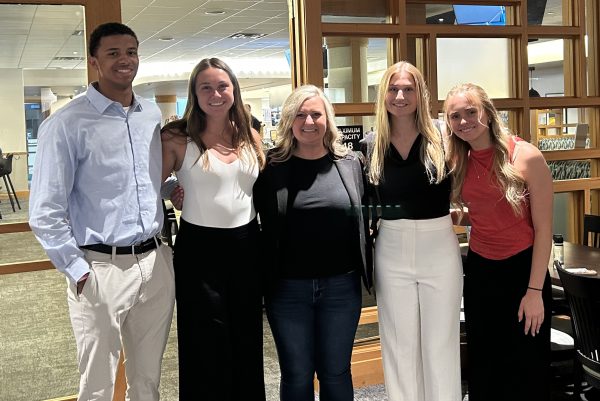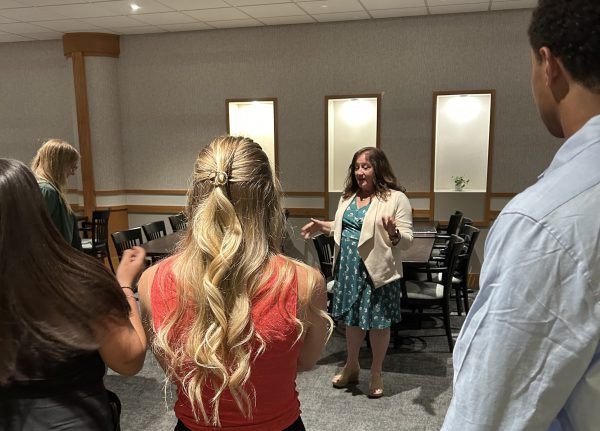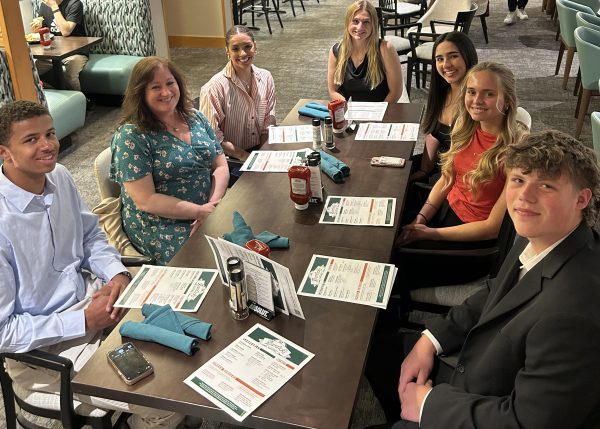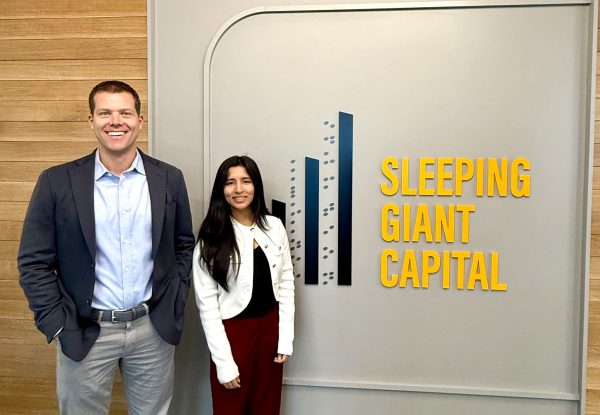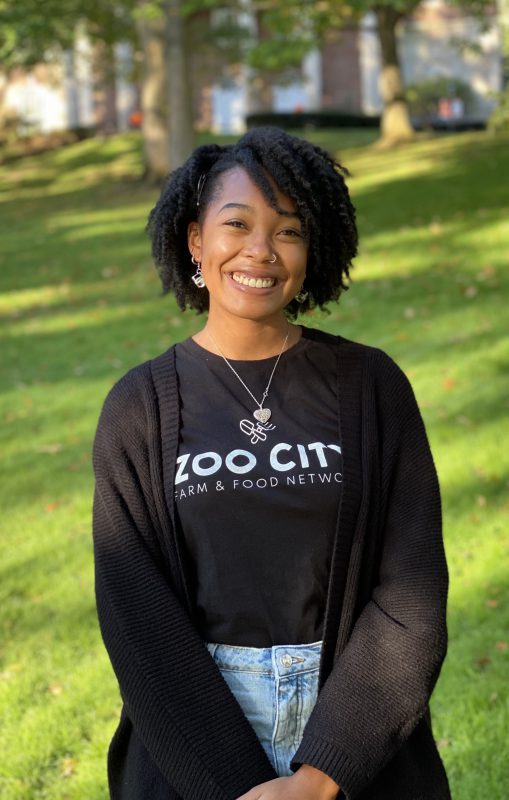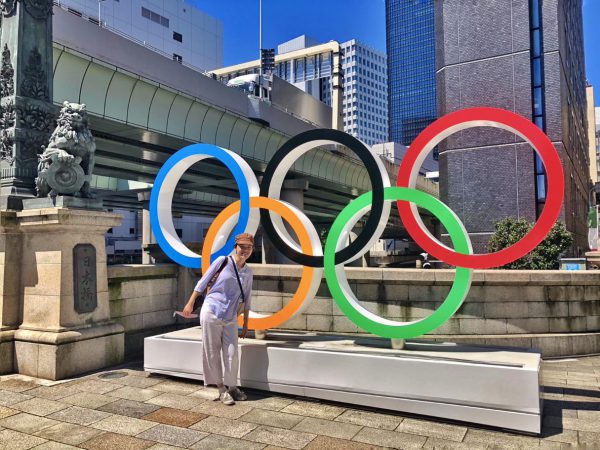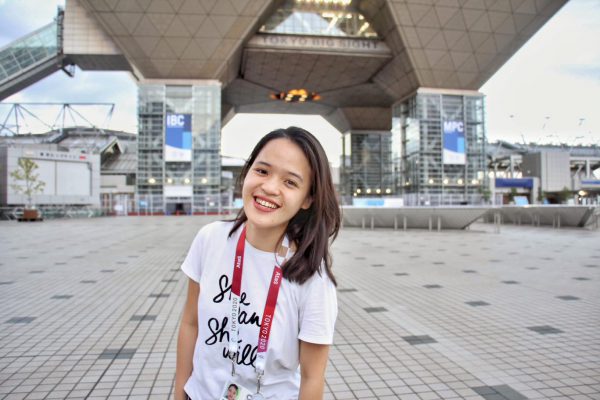A mutually beneficial relationship developed last fall between Kalamazoo College students and Greenleaf Hospitality Group (GHG), as the local business sought new ways to recruit prospective interns and recent college graduates to its employment opportunities.
That’s when GHG—which runs hotels, event centers, restaurants, retail outlets and more in the city—worked with K’s Principles of Marketing class, led by L. Lee Stryker Professor of Business Management Amy MacMillan. Students in the class presented ideas, and one in particular—generated by Savannah Chapie ’27, Jillian Smith ’27, Robert Ahlgren ’27, Matthew Matuza ’27 and Eamonn Burns ’27—received a real-world green light. The five recommended building a new job-shadowing program that could show career-minded students the benefits of the hospitality industry.
“We decided to show people that hospitality has a lot more that goes into it than most people think,” Chapie said. “It has duties like marketing, sales, human resources and more. We also used surveys to ask K and Western Michigan University students what their existing ideas of hospitality were and whether they knew what Greenleaf was and what they wanted out of their career.”
The process generated excitement from students and praise from GHG. Then, when the class ended, Chapie and Smith continued helping the business recruit students, first-year students and sophomores in particular, for spring opportunities.
“We thought first years and sophomores would be best for the job shadow because they were most likely to not yet know what they want to do with their careers,” Smith said. “It was a way to open up the doors for them and get them to see the benefits of the industry.”
It’s not unusual for K students to secure job shadows, but these were distinctive for the ultimate recipients—Victoria Gutierrez ’28, Nolan Jannenga ’27, Avery Hall ’28 and Bradley Eziuka ’28—because the opportunities were developed by two of their fellow students in cooperation with a company located only a mile from campus. The shadows helped the four students gain firsthand experience involving the hospitality industry along with clearer goals for developing their careers.
“I was interested in the job shadow with GHG because of its prior collaboration with Kalamazoo College,” Eziuka said. “I found the opportunity to gain a better understanding of GHG intriguing because I might work with them more as I advance through my school years.”
In addition to their core experiences, the students also shadowed several key departments, including Sales with Director of Sales Laura Ayan, Event Planning with Special Events Producer Lindsay Davies, and Golf Management at Kalamazoo Country Club with Director of Instruction Scott Adland.
All four shadowers spent a full day both downtown and at Kalamazoo Country Club, where they had the opportunity to meet with several organizational leaders, including Recruiting Manager Meg Brake, Finance Director Brian Beam, Vice President of Marketing and Technology Services Sarah Olszowy, and Senior Sales Manager Derrick Ricca. In the afternoon, they also met with Executive Director of Human Resources Stephanie Farrell, who offered personalized advice on their career goals and shared how the hospitality industry can align with a wide range of individual interests.
Did the students chosen find the opportunity to be valuable? Yes, beyond any shadow of a doubt.
“I’d say the opportunity absolutely provided me with clarity regarding my career path and sparked a genuine interest in the hospitality industry,” Eziuka said. “During my conversation with Derrick Ricca, he emphasized the importance of relationships within his department of the business—something I could strongly relate to, as I’ve become increasingly social and have been steadily improving my interpersonal skills. His dedication to the quality and condition of his clients’ experiences further piqued my interest. In addition to Derrick’s insights, Stephanie Farrell offered valuable advice about career development. I shared my interest in wealth management and finance, along with a budding entrepreneurial mindset, and she encouraged me to explore various roles throughout college. She highlighted that understanding that who you become during these experiences can play a crucial role in discovering a career that aligns with your personal goals.”
Chapie and Smith agreed the project was a success from their perspectives—so much so that they will have a chance to improve upon the program in the 2025–26 academic year.
“We hope that this will prove to be just a start for these shadows,” Smith said. “We would like to run these throughout the next few years and let them get bigger, because Greenleaf does have some amazing opportunities that we didn’t even realize were possible until we started working on this project.”
“Maybe going forward, we can have the event once per trimester with 15 students or so in the hopes of helping those undecided on their majors build some career ideas,” Chapie said. “It’s a big deal to be able to network and create opportunities for yourself. And speaking for both of us, it’s been a way to help ourselves network and make more connections, as well.”
